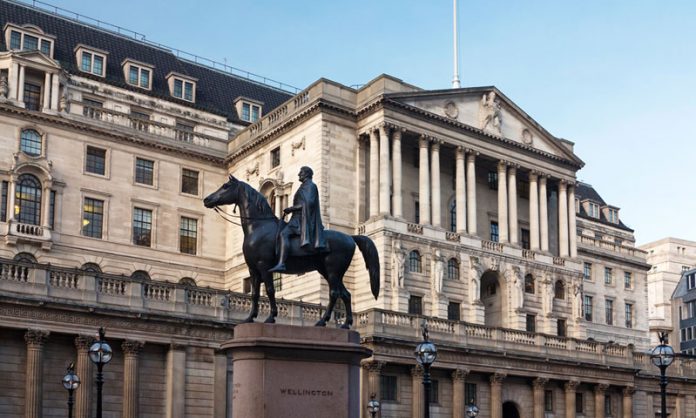LONDON: Bank of England policymakers voted to keep its main interest rate at a record low 0.25 percent, the BoE said Thursday, despite inflation on the rise amid Brexit uncertainty.
The British central bank said all nine policymakers agreed at a regular policy meeting to keep the rate on hold and to leave the amount of QE cash stimulus pumping around the economy at #435 billion ($543 billion, 521 billion euros).
The BoE’s update comes a day after the Federal Reserve lifted interest rates and signalled three more hikes for next year, as the US central bank also positions itself for an expected rise to inflation in the United States.
Minutes of the BoE’s latest meeting noted that “the global outlook has become more fragile, with risks in China, the euro area and some emerging markets, and an increase in policy uncertainty”.
In Britain, official data this week revealed stable unemployment and a jump to inflation.
British annual inflation rose in November to the highest level in more than two years as a slide in sterling since the Brexit vote lifted fuel costs.
Separate data Thursday showed a small increase in British retail sales for November thanks to Black Friday discounts.
The pound tumbled following Britain’s shock June 23 vote in favour of leaving the European Union, striking 31-year dollar lows and 7.5-year troughs against the euro.
The BoE responded to Brexit uncertainty by slashing its main interest rate to the current level in August, as part of a post-referendum stimulus package as governor Mark Carney warned of recession risks.
So far the British economy has outperformed expectations and last month the BoE hiked its 2017 growth forecast, although it has downgraded guidance for the following year.
“The December… minutes do little to change the view that interest rates are likely to stay at 0.25 percent through 2017,” noted IHS Markit analyst Howard Archer, while some experts are even predicting that the next BoE move will be a rate cut rather than a hike.
“Brexit-related uncertainty is leading to big falls in business surveys regarding investment and hiring plans,” James Knightley, senior economist at ING bank, said after Thursday’s update from the Bank of England.
“At the same time rising inflation is squeezing household spending power and the slowdown in job creation is adding to uncertainty for consumer spending.
“This combination of weakness from both the household and corporate sectors poses downside risks to growth next year. This will reduce inflation pressures in the medium term so we still think that a rate cut is more likely than a rate hike,” Knightley added in a research note.





